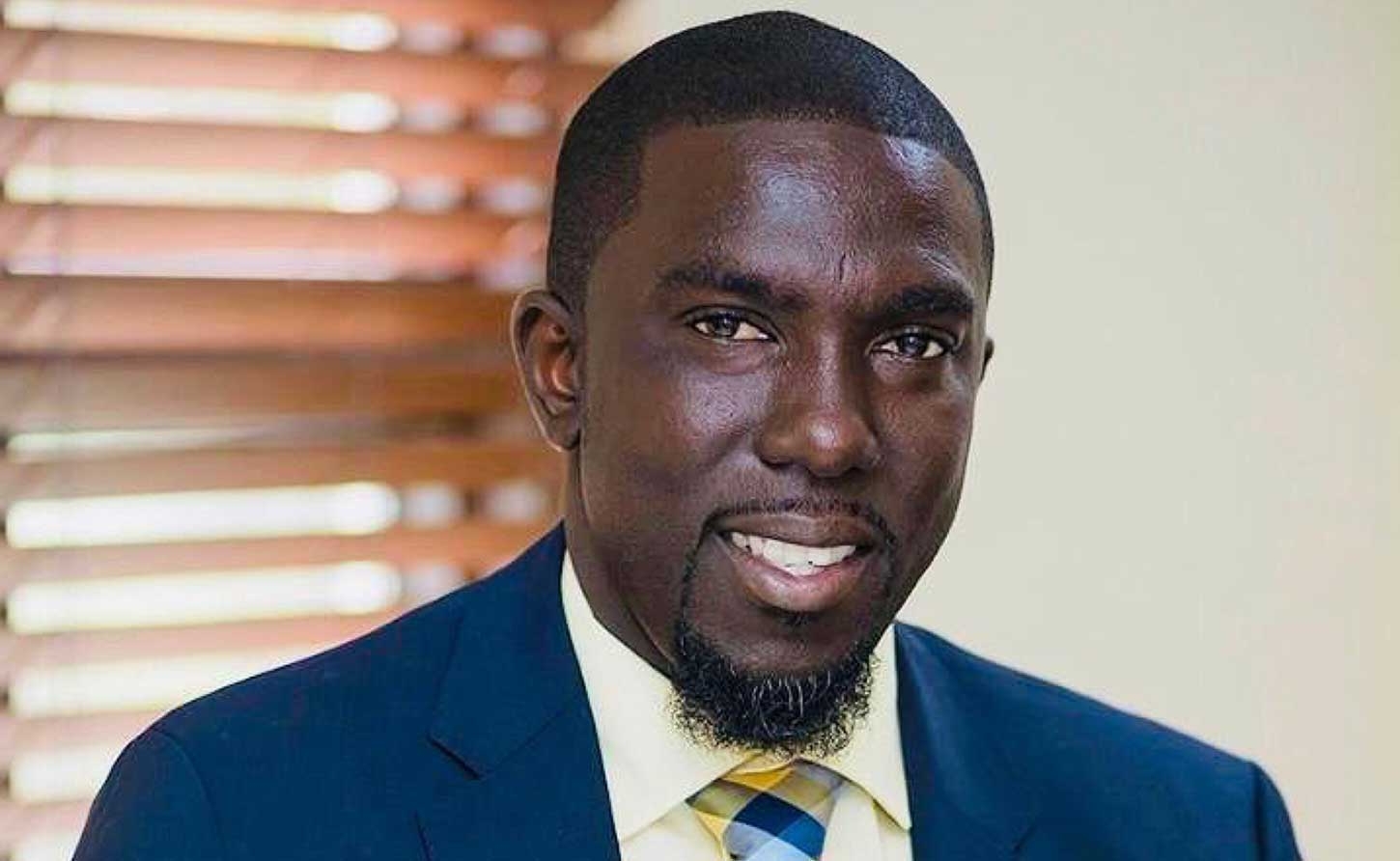ANTIGUA | Riot Squad Unit Sent to eject the Opposition Leader from PAC Meeting in Parliament?

ST. JOHNS, Antigua, June 9, 2025 - In a scene that would make authoritarian regimes blush, Antigua and Barbuda's Police Special Services Unit ( Riot Squad) was summoned on June 5th to clear parliament of what officials termed an "illegal meeting"—except no meeting had actually occurred.
The target of this heavy-handed response? Opposition Leader and Public Accounts Committee Chairman Jamale Pringle, who had committed the apparently criminal act of following proper parliamentary procedure.
The facts reveal a troubling pattern of government obstruction masquerading as law enforcement, compounded by a fundamental misunderstanding of parliamentary authority. Pringle had properly convened the June 5th Public Accounts Committee meeting, for which advance notice had been given and citizens invited to witness parliamentary accountability in action. What unfolded instead was a masterclass in democratic dysfunction and constitutional ignorance.
Two government committee members—the Honourable Daryll Matthew and Anthony Smith Jr.—were conveniently off-island, while the Honourable Melford Nicholas allegedly failed to respond to the meeting notice entirely.
Crucially, the Clerk had pre-emptively telephoned to announce there would be no quorum, apparently believing this administrative observation somehow canceled the meeting entirely. This represents a stunning usurpation of authority that belongs exclusively to the Chair.
Parliamentary procedure is crystal clear on this matter: only the Chairman possesses the authority to postpone a meeting. The absence of a quorum is determined after the meeting convenes, not before it begins. Moreover, meetings can proceed without a quorum—the limitation is that no binding decisions can be made, not that democracy itself must cease to function.
The Clerk's pre-emptive cancellation was not only procedurally incorrect but constitutionally impermissible.
The sequence of events exposes the Kafkaesque logic now governing parliamentary procedure. Pringle followed protocol to the letter: he convened the meeting as the sole authority empowered to do so, identified the absence of quorum after convening, and began explaining the situation to the public.
The meeting could have proceeded for discussion purposes—parliamentary procedure explicitly permits this, with the sole restriction being that no binding decisions could be made. Yet somehow, this textbook exercise in constitutional authority triggered a call to the Special Services Unit to clear an "illegal meeting" based on the Clerk's unauthorized pre-emptive cancellation.
The absurdity deepens when one considers the timeline. The PAC meeting had already been postponed twice—first at Pringle's request due to constituency obligations in May, then again due to "other matters affecting the administration of the House." The June 5th date represented the third attempt to fulfill the committee's mandate, suggesting a pattern of systematic avoidance by government members.
Pringle's observation cuts to the constitutional heart of the matter: "If there was no quorum, then no meeting—'illegal' or otherwise—was held." But this misses the deeper constitutional violation. The meeting should have proceeded under the Chair's authority, with discussion permitted even without a quorum.
The Special Services Unit was called based on the Clerk's unauthorized cancellation—a bureaucratic usurpation of the Chairman's exclusive authority to determine when and how meetings conclude. This represents either spectacular constitutional ignorance or calculated subversion of parliamentary sovereignty.
More damning still is the timing of the police intervention. According to Pringle, "everybody was already on the way out" when officers arrived, suggesting the response was less about maintaining order than making a statement.
The message was unmistakable: even lawful parliamentary procedure becomes suspect when it threatens to expose government accountability gaps.
The human cost of this constitutional theater should not be overlooked. Citizens who responded to their elected representative's invitation found themselves branded participants in an illegal gathering.
Taxpayers seeking transparency in government operations were met with special services officers, as if accountability itself posed a security threat.
This incident illuminates a broader erosion of parliamentary sovereignty and the dangerous precedent of administrative officers usurping elected authority.
When parliamentary clerks can unilaterally cancel meetings that only Chairmen are empowered to postpone, when the constitutional right to convene proceedings becomes grounds for police intervention, and when the distinction between "no binding decisions" and "no meeting" is obliterated by bureaucratic fiat, democracy enters dangerous territory.
The House of Parliament belongs to the people and their elected representatives, not to bureaucrats who mistake administrative convenience for constitutional authority.
The government's strategy appears clear: if you cannot defend your record before the Public Accounts Committee, simply ensure the committee cannot meet. When Opposition members persist in following proper procedure, criminalize their persistence. When citizens seek transparency, deploy special services to disperse their curiosity.
Pringle's frustration is palpable and justified: "I hope they now understand the level of frustration I feel when this happens over and over." The repeated postponements, strategic absences, and now police interventions reveal a systematic campaign to neuter parliamentary oversight.
The Public Accounts Committee, designed to ensure fiscal transparency, has been transformed into an exercise in government absence.
The rescheduled meeting for the 3rd of July, presents an opportunity for redemption—if government members can locate both their calendars and their constitutional obligations. Whether they will risk facing questions about public finances, or engineer another convenient crisis requiring police intervention, remains to be seen.
Until parliamentary procedure is restored and respected, Antigua and Barbuda's democracy will continue operating under the shadow of special services units, where elected representatives face police action for performing their duties, and citizens encounter riot gear when seeking government accountability.
The real illegality here lies not in following parliamentary procedure, but in the systematic subversion of democratic oversight through intimidation, obstruction, and the weaponization of law enforcement against constitutional governance.
-30-
